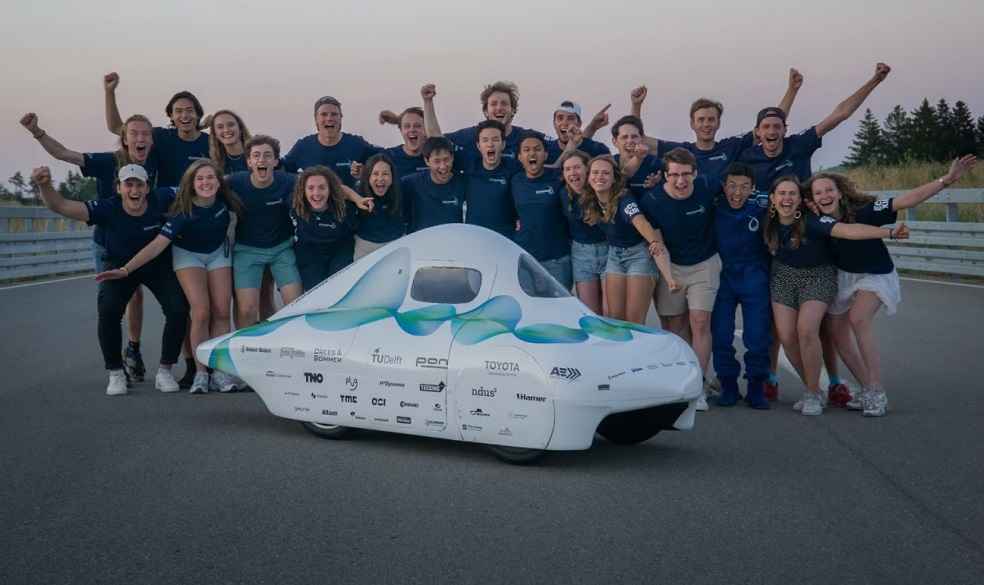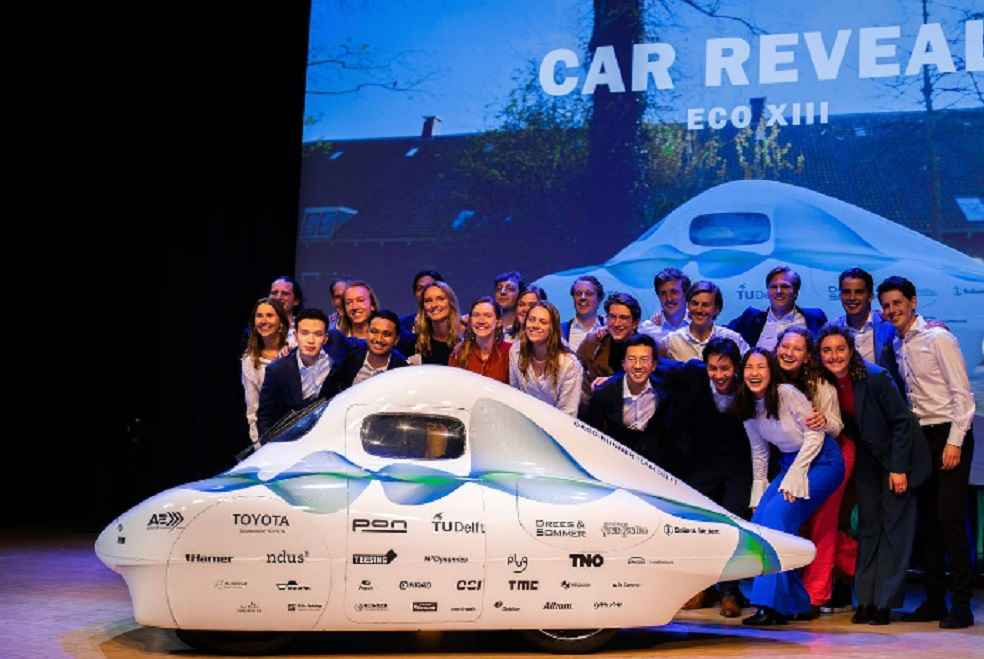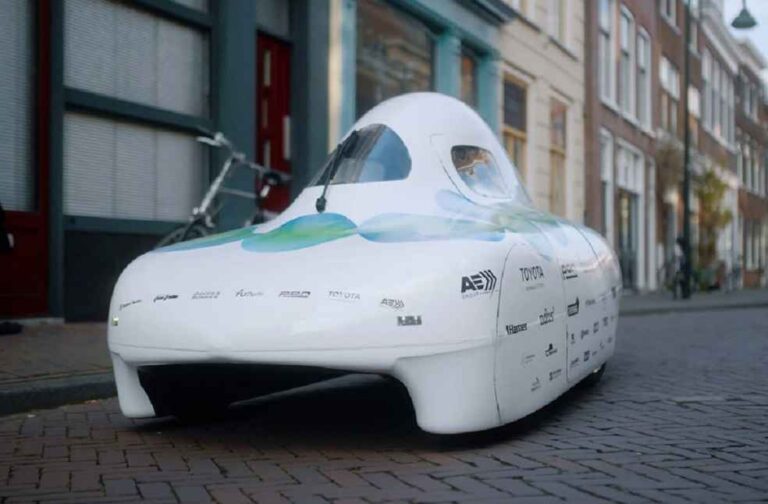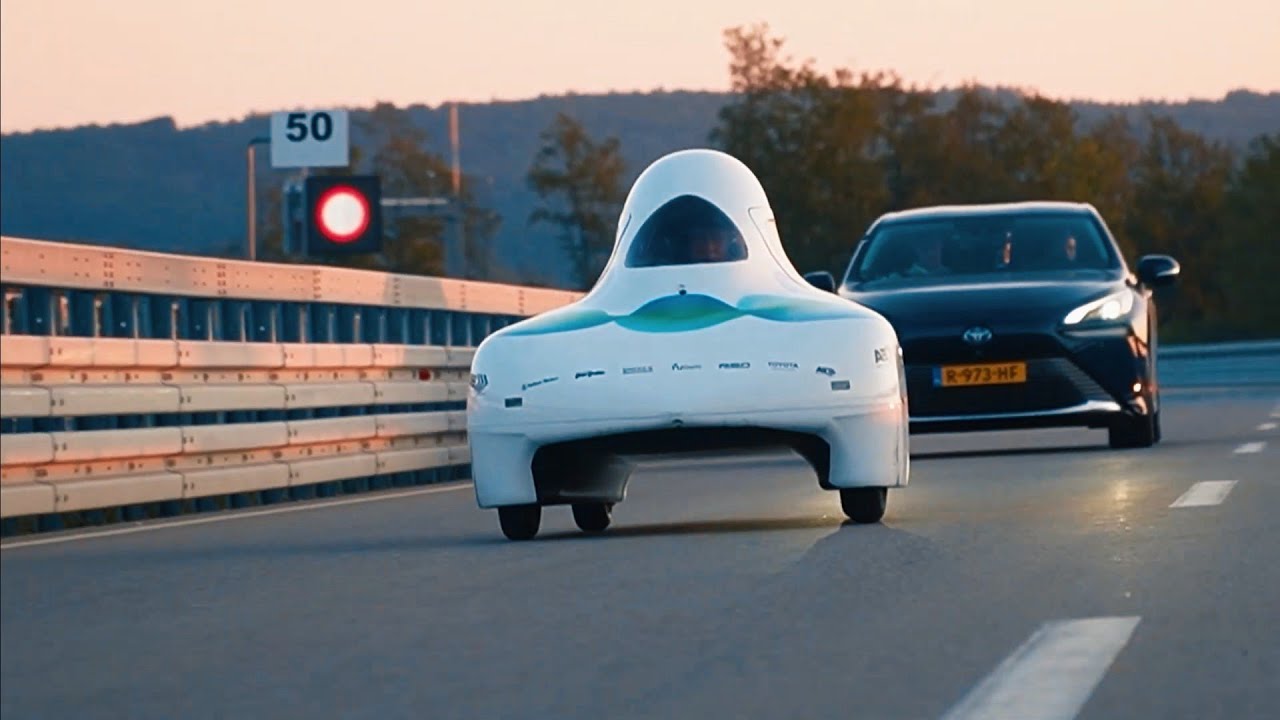An extraordinary stride for hydrogen fuel cell technology has been made by students at Delft University of Technology in the Netherlands. Their cutting-edge vehicle, the Eco-Runner XIII, has set a new Hydrogen Car World Record recognized by Guinness. This groundbreaking achievement saw the Eco-Runner XIII cover an impressive 2,488.4 kilometers (1,546.2 miles) — approximately the distance from Boston to Miami — using only a single kilogram of hydrogen fuel.

The record-setting feat occurred over three days, starting on Sunday, June 25, at Germany’s Immendingen track. The student team drove a total of 71.5 hours, taking turns in two-hour shifts, with the Eco-Runner XIII only stopping for driver exchanges.
This achievement outstrips the prior record of 2,056 kilometers (1,277 miles) set by ARM Engineering’s electric Renault Zoe in May 2022. Unlike the hydrogen-powered Eco-Runner XIII, the Renault Zoe relies on a methanol fuel cell.
The Delft team first embarked on their Eco-Runner project in 2005, and the thirteenth iteration of this endeavor represents a pivotal milestone for the advancement of hydrogen vehicles. Revealed in May, the Eco-Runner XIII was hailed by its creators as possibly the most efficient hydrogen car ever built.

The distinctive cloud-shaped, three-wheeled Eco-Runner XIII incorporates carbon fiber instead of steel in several components, such as push rods in the steering system, the body of the vehicle, and the suspension beams. This inventive approach, coupled with a state-of-the-art fuel cell, optimizes energy efficiency, particularly during the transformation of hydrogen into electricity and subsequently into kinetic energy.
While the Eco-Runner XIII’s top speed of 45 kilometers per hour (27 miles per hour) and one-passenger limitation may not position it as a conventional vehicle choice, its technological breakthroughs point toward a promising future for hydrogen fuel cell vehicles. Hydrogen cars are gaining traction, with about 56,000 units sold globally in 2022, and market predictions estimate a value of $17.88 billion by 2029.
The Delft team’s triumph bolsters the growing support for hydrogen as a practical alternative to fossil fuels. The team’s press contact, Eline Schwietert, stressed in a recent statement that both hydrogen and electric cars play a crucial role in the pursuit of sustainable mobility, signifying that there is not a sole victor in this race.
Coinciding with these advancements, the Netherlands recently unveiled the first hydrogen energy refueling hub just outside of Amsterdam, offering further support for hydrogen-powered vehicles.
While challenges persist in the development and adoption of hydrogen technology, milestones like the Eco-Runner XIII’s record-setting drive underscore the vast potential of hydrogen as a clean, sustainable fuel for the future.
OBSERVATION: Hydrogen Fuel Vehicles Future; Brighter Than EVs?






